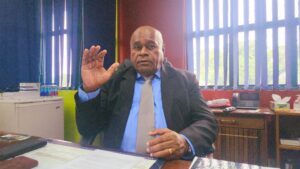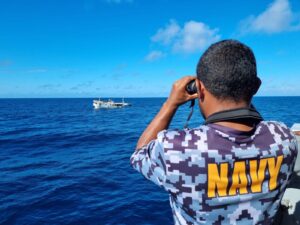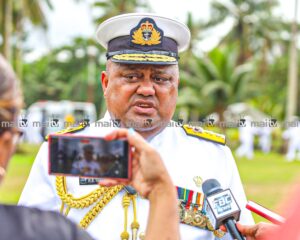Fiji’s PM Sitiveni Rabuka stands by his support of the International Atomic Energy Agency (IAEA) report endorsing Japan’s safe nuclear wastewater discharge, despite facing criticism from his own cabinet and party, while Tonga’s PM Siaosi Sovaleni indicates that a decision on the matter is pending and Tuvalu’s Finance Minister Seve Paeniu voiced significant concern regarding Japan’s plans.
In his 24-minute speech welcoming delegates to the Pacific Small Islands Developing States High-Level Dialogue on Climate Change in Suva, Fiji’s Coalition Government leader spent around one-third of the time explaining his position which he deemed his prerogative as Prime Minister, while also urging those who disagreed to consider the underlying science.
Released online on 4 July, the IAEA Report states that Japan’s intention to release 1.3 million tonnes of treated radioactive nuclear wastewater into the Pacific Ocean over the next 40 years is in accordance with international safety standards.
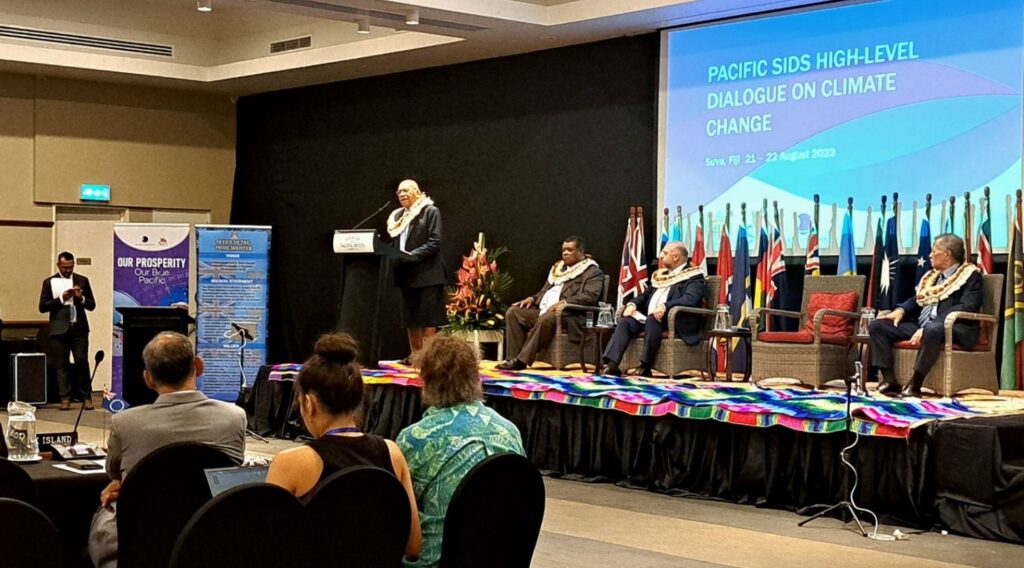
“I based my views on the science applied by the independent IAEA in its investigations and report,” Rabuka said. “The IAEA is part of the United Nations system. The safety standards mentioned by the IAEA are reviewed annually by the UN General Assembly, based on estimates by the UN Scientific Committee on Effects of Atomic Radiation (UNSCEAR). The standards also include recommendations from independent non-government group the International Commission on Radiological Protection (ICRP).”
He quoted responses from experts including Professor Jim Smith, of the School of Environment, Geography and Geosciences at the University of Portsmouth in the UK, Professor Robin Grimes, Steele Chair of Energy Materials, Imperial College London, and Professor Gerry Thomas, former Professor of Molecular Pathology, Imperial College London, all of which he says underline the minimal environmental and health risks associated with the Fukushima wastewater discharge.
Rabuka also responded to criticism that appeared to connect the wastewater discharge with the cataclysmic power of the nuclear bombs dropped in the Pacific as part of weapons testing, highlighting that such a comparison is not accurate.
“That, to me, is fear-mongering. It’s impossible to compare those nuclear tests, with the careful discharge of treated wastewater from Fukushima over a period of approximately 30 years,” he said. “The material I have read says a commercial type power reactor simply cannot, under any circumstances, explode like a nuclear bomb. The fuel is not enriched beyond about 5 percent; a much higher enrichment is needed for explosives.”
He noted that the matter would also be discussed during the 52nd Pacific Islands Forum Leaders meeting in the Cook Islands scheduled for November this year.
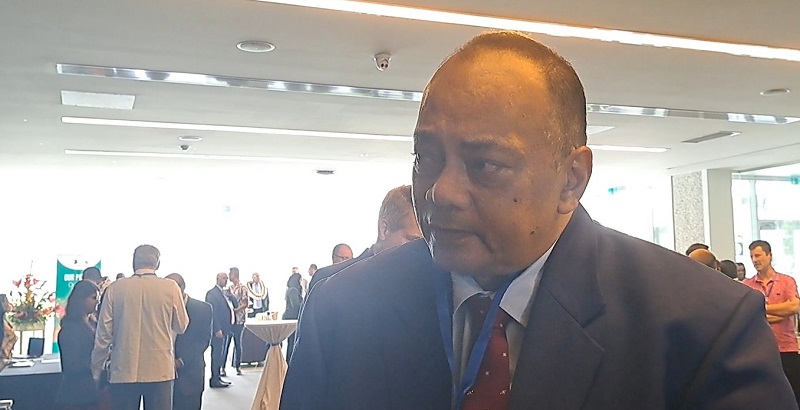
Tonga PM and Forum Leaders Meeting Agenda
Tongan Prime Minister Sovaleni, present in Suva and part of the morning session, echoed the sentiments of the Fijian PM, stating that the matter would be discussed in the upcoming Forum meeting. He referred to the topic as a “sovereign issue” and clarified that Tonga’s decision on it is still pending.
“I do believe that it is a sovereign issue, and each country will make its own decision. We have yet to make a decision,” Sovaleni said.
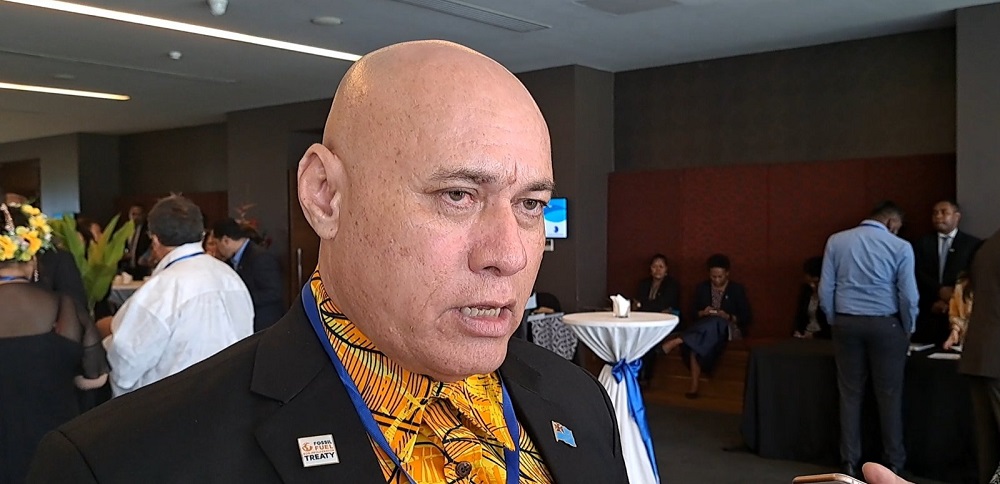
Tuvalu Finance Minister
Tuvalu Finance and Economic Development Minister Seve Paeniu voiced deep concerns about Japan’s planned nuclear wastewater discharge into the ocean, and the country will use the Pacific Islands Forum platform to advocate against it. He said the ocean is a critical resource for survival and is committed to preventing any potential harm.
“The science is also debatable and if Japan is really certain that there won’t be any harmful impact on the ocean ecosystem and marine life, then they should dump it in their own lakes in Japan.”
When asked about the potential for differing views to create division within the Forum, Paeniu said that the Pacific Islands Forum already has a united stance, and believes that the differing opinions are not likely to lead to a rift within the regional body.
“I think the PIF has already made a collective position on it which is to enter into a dialogue with Japan to reach a solution or an understanding on this issue so I am sure there won’t be any repercussions.”
Pacific Islands Forum Statement July 14, 2023
In a statement dated July 14 Forum Chair and Cook Islands Prime Minister Mark Brown said the matter would be presented to the Forum Leaders “to determine the next steps.”
The statement was released after Brown received an update on the IAEA’s final Report from Director General Rafael Grossi in the Cook Islands on July 10. The presentation was attended virtually by several high-level representatives, including Tongan Prime Minister Hu’akavameiliku, New Zealand Deputy Prime Minister Carmel Sepuloni, PIF Secretary General Henry Puna, and other senior members of the Forum.
During the meeting Brown highlighted the significance of the Pacific Nuclear Free Zone established under the Treaty of Rarotonga, expressing the region’s commitment to preserving the ocean space, land territory, and airspace for the benefit of present and future generations. He underlined the need for ongoing dialogue and genuine engagement on the issue of nuclear safety and the planned release of treated radioactive water.
The 52nd Forum Leaders’ Meeting is scheduled for 6-10 November 2023.



